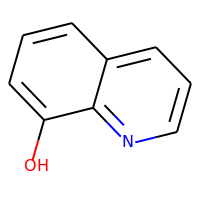DISCLAIMER
NeurotoxKb is a comprehensive knowledgebase of potential environmental neurotoxicants specific to mammals compiled from well-established resources based on the observed neurotoxic endpoints in published literature. The presence of any of the potential neurotoxicants in publicly available chemical compilations, regulatory lists, and guidelines worldwide is reported here solely to support future research on neurotoxicity of environmental chemicals. We do not claim responsibility for any errors or omission in compiled evidence supporting the neurotoxicity of chemicals in our resource, and hence, users are advised to exercise their own informed decision in using the compiled list of potential neurotoxicants in our resource. Further, this work on the compilation of a resource on potential neurotoxicants and their toxicological endpoints is solely based on our scientific understanding of the topic, and this does not necessarily reflect the views or policies of our employers or funders.
